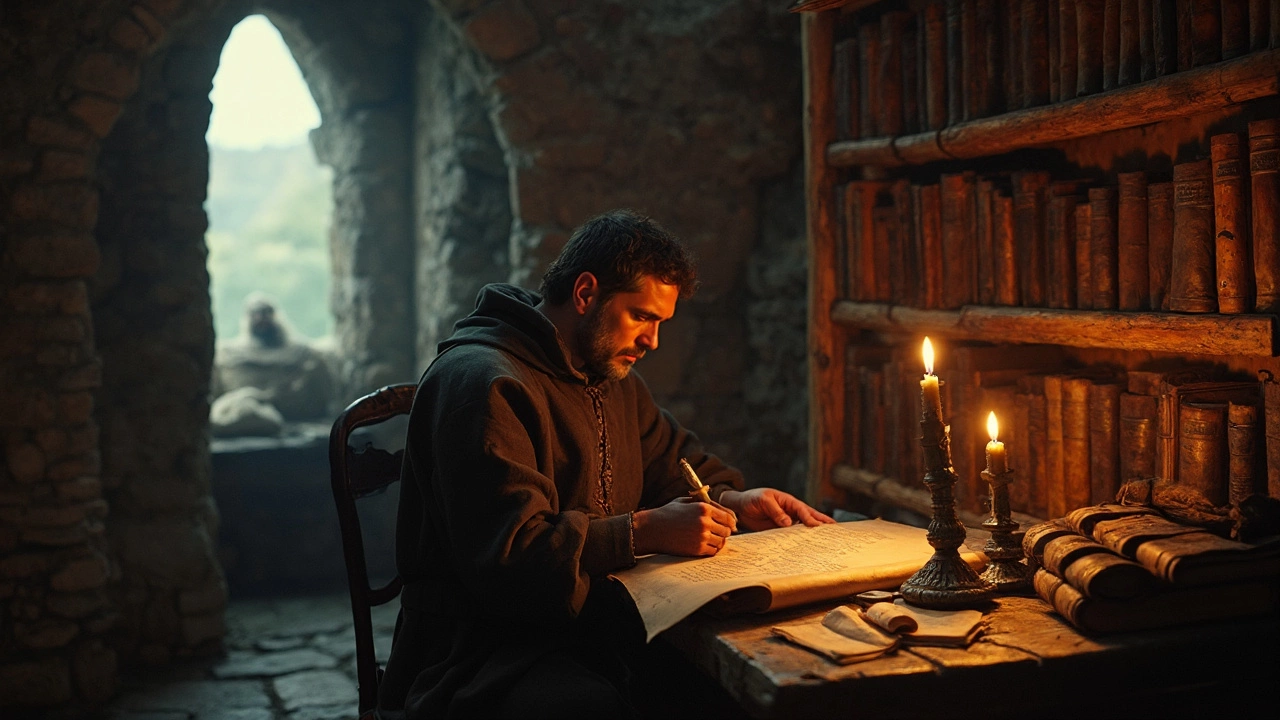Cædmon's Hymn: The First English Poem Explained
Ever wonder which poem is considered the very first piece of English literature? It’s called Cædmon’s Hymn. This short hymn was written in the 7th century by a farm‑hand named Cædmon, who suddenly could sing verses about God after a strange dream.
The story comes from the Venerable Bede’s Ecclesiastical History. Bede says Cædmon was illiterate, but after the dream he sang a praise of creation in Old English. That’s why scholars call it the earliest known English poem.
What the Hymn Says
The hymn is just a handful of lines, but each line praises a part of the world – the heavens, the earth, the sea, and the sun. It’s basically a poetic version of the Genesis creation story. The language is simple: it talks about how God made everything and how everything follows his will.
Because it’s Old English, the words sound very different from modern English. For example, "Heaferð" means “heaven” and "steorra" means “star”. Still, the core idea is easy to get – it’s a celebration of the world’s beauty and the creator behind it.
Why It Still Matters
First, Cædmon’s Hymn shows that poetry was part of everyday life even before the medieval period. It proves that ordinary people could become poets, not just scribes or monks. Second, the hymn gave later writers a model for using native language instead of Latin for religious writing.
Modern writers often quote the hymn when they talk about the roots of English literature. It also appears in classrooms when teachers explain how language evolves. The simple structure – short lines, alliteration, and a clear theme – set a pattern that later Anglo‑Saxon poems followed.
If you’re curious about early English, reading Cædmon’s Hymn is a great start. You get a taste of how people expressed faith, how they saw nature, and how the English language began to shape itself. Plus, it’s short enough to read in a few minutes but deep enough to spark a lot of questions.
So next time you hear the name Cædmon, remember it’s not just a footnote – it’s the spark that lit the fire of English poetry. Grab a translation, listen to a recording, or try reading the original Old English line by line. You’ll see how the first English verse still echoes in the words we write today.
Explore the oldest surviving poem in Old English, its origins, meaning, and why it still matters. Dive into Cædmon's Hymn with unique insights, facts, and legacy.
More